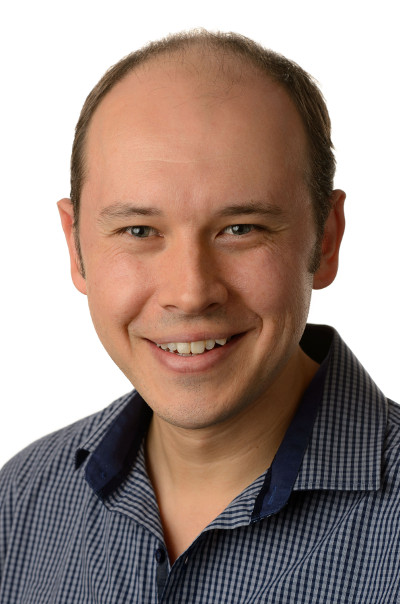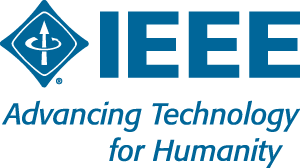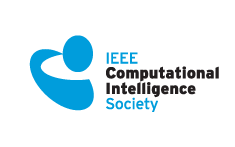2017 IEEE Symposium on Artificial Life(IEEE ALIFE'17)
IEEE
ALIFE' 17 brings together researchers working on the emerging areas of
Artificial Life and Complex Adaptive Systems, aiming to understand and
synthesize life-like systems and applying bio-inspired synthetic
methods to other science/engineering disciplines, including Biology,
Robotics, Social Sciences, among others.
Artificial Life is the study of the simulation and synthesis of living systems. In particular, this science of generalized living and life-like systems provides engineering with billions of years of design expertise to learn from and exploit through the example of the evolution of organic life on earth. Increased understanding of the massively successful design diversity, complexity, and adaptability of life is rapidly making inroads into all areas of engineering and the Sciences of the Artificial. Numerous applications of ideas from nature and their generalizations from life-as-we-know-it to life-as-it-could-be continually find their way into engineering and science.
Artificial Life is the study of the simulation and synthesis of living systems. In particular, this science of generalized living and life-like systems provides engineering with billions of years of design expertise to learn from and exploit through the example of the evolution of organic life on earth. Increased understanding of the massively successful design diversity, complexity, and adaptability of life is rapidly making inroads into all areas of engineering and the Sciences of the Artificial. Numerous applications of ideas from nature and their generalizations from life-as-we-know-it to life-as-it-could-be continually find their way into engineering and science.
Topics
We
invite submissions of high-quality contributions on a wide variety of
topics relevant to the wide research areas of Artificial Life. Some
sample topics of interest include, but are not limited to, the
following aspects of Artificial Life:
- Systems Biology, Astrobiology, Origins of Replicators and Life
- Major Evolutionary Transitions
- Applications in Nanotechnology, Compilable Matter, or Medicine
- Genetic Regulatory Systems
- Predictive Methods for Complex Adaptive Systems
- Self-reproduction, Self-Repair, and Morphogenesis
- Human-Robot Interaction
- Robotic and Embodiment: Minimal, Adaptive, Ontogenetic and/or Social Robotics
- Constructive Dynamical Systems and Complexity
- Evolvability, Heritability, and Multicellularity
- Genetic Regulatory Systems
- Information-Theoretic Methods in Life-like Systems
- Sensor and Actuator Evolution and Adaptation
- Wet and Dry Artificial Life (e.g. artificial cells; non-carbon based life)
- Non-Traditional Computational Media
- Emergence and Complexity
- Multiscale Robustness and Plasticity
- Phenotypic Plasticity and Adaptability in Scalable, Robust Growing Systems
- Predictive Methods for Complex Adaptive Systems and Life-like Systems
- Automata Networks and Cellular Automata
- Ethics and Philosophy of Artificial Life
- Co-evolution and Symbiogenesis
- Simulation and Visualization Tools for Artificial Life
- Genetic Regulatory Systems
- Replicator and Interaction Dynamics
- Network Theory in Biology and Artificial Life
- Synchronization and Biological Clocks
- Genetic Regulatory Systems
- Methods and Applications of Evolutionary Developmental Systems (e.g. developmental genetic-regulatory networks (DGRNs), multicellularity)
- Games and Generalized Biology
- Self-organization, Swarms and Multicellular Systems
- Emergence of Signaling and Communication
Keynote Speakers
- Prof. Lee Altenberg (University of Hawaiʻi at Mānoa) -- "Revisiting Eigen's Paradox for the Evolution of Genetic Information"
- Prof. Takashi Ikegami (University of Tokyo) -- "Life as an Emergent Phenomenon: Studies From Large-Scale Boid Simulation and Web Data"
Best paper/best student paper awards of IEEE ALIFE 2017 are sponsored by Wolfram Research, Inc.

Best paper: "Governing the swarm" [#1633], Martin Stefanec, Martina Szopek, Rob Mills and Thomas Schmickl
Best student paper: "Computing by Nowhere Increasing Complexity" [#1153], Bar Peled, Vikas Kumar Mishra and Avishy Carmi
Special commendation: "Models of Adaptive Navigation, Inspired by Ant Cooperative Transport in the Presence of Obstacles" [#1171], Elizabeth E. Esterly, Helen McCreery and Radhika Nagpal
Social media posts documenting the IEEE ALife 2017 event have been captured in a storify page.
Symposium Chair

Joseph Lizier
The University of Sydney, Australia
Email: joseph.lizier@sydney.edu.au
Symposium
Co-Chairs

Chrystopher Nehaniv
University of Hertfordshire, UK
Email: C.L.Nehaniv@herts.ac.uk

Hiroki Sayama
Binghamton University, USA
Email: sayama@binghamton.edu

Mykhailo Prokopenko
The University of Sydney, Australia
Email: mikhail.prokopenko@sydney.edu.au

Terry Bossomaier
Charles Sturt University, Australia
Email: tbossomaier@csu.edu.au
Program
Committee
- Prof. Hussein Abbass, University of New South Wales
- Prof. Andrew Adamatzky, University of the West of England
- Prof. Andreas Albrecht, Middlesex University
- Prof. Lee Altenberg, University of Hawaii
- Prof. Martyn Amos, Manchester Metropolitan University
- Prof. Takaya Arita, Nagoya University
- Prof. Wolfgang Banzhaf, Michigan State University
- Prof. Randall Beer, Indiana University
- Dr. Axel Bender, Defence Science and Technology Organisation
- Prof. Katie Bentley, Harvard Medical School
- Dr. Christopher Buckley, University of Sussex
- Prof. Angelo Cangelosi, University of Plymouth
- Dr. Dominique Chu, University of Kent
- Dr. Christian Darabos, Dartmouth College
- Prof. Rene Doursat, Manchester Metropolitan University
- Prof. Margaret J. Eppstein, University of Vermont
- Dr. Tom Froese, Universidad Nacional Autonoma de Mexico
- Prof. Simon Garnier, New Jersey Institute of Technology
- Dr. Nicholas Geard, University of Melbourne
- Dr. Keyan Ghazi-Zahedi, Max Planck Institute Mathematics in Sciences
- Prof. Inman Harvey, University of Sussex
- Prof. Takashi Ikegami, University of Tokyo
- Prof. Christian Jacob, University of Calgary
- Dr. Georg Martius, Max Planck Institute for Intelligent Systems
- Prof. Peter William McOwan, Queen Mary University of London
- Prof. Melanie Moses, University of New Mexico
- Prof. Stefano Nolfi, Institute of Cognitive Sciences and Technologies
- Prof. Mizuki Oka, Tsukuba University
- Prof. Ted Pavlic, Arizona State University
- Prof. Joshua L. Payne, University of Zurich
- Dr. Fiona Polack, University of York
- Prof. Daniel Polani, University of Hertfordshire
- Prof. Thomas S. Ray, University of Oklahoma
- Prof. Luis Rocha, Indiana University
- Dr. Christoph Salge, New York University
- Dr. David Sousa-Rodrigues, Open University
- Prof. Reiji Suzuki, Nagoya University
- Prof. Christof Teuscher, Portland State University
- Prof. Tatsuo Unemi, Soka University
- Dr. Sebastian von Mammen, University of Calgary
- Dr. Justin Werfel, Harvard University
- Prof. Janet Wiles, University of Queensland
- Dr. Hector Zenil, University of Sheffield and Wolfram Research
- Prof. Thomas Schmickl, University of Graz
- Dr. Borys Wrobel, Adam Mickiewicz University






